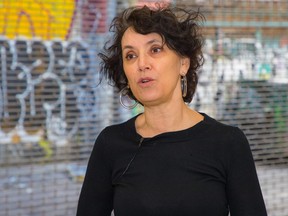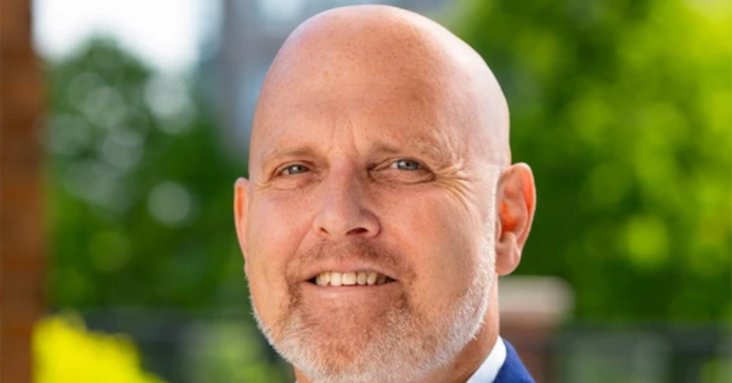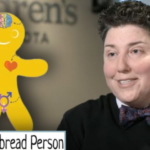
Atira is a Vancouver-based non-profit that has received more than $120 million in B.C. Housing funding since 2018 to operate hundreds of units of non-market housing and deliver social programs to vulnerable residents.
Eby said it was “profoundly concerning” that Ramsay had sent text messages to staff directing that Atira receive government funding. That violated the conflict of interest screen that barred him from discussing those projects because of his relationship with Abbott. The two married in 2010.
Eby said Barodawalla was dismissed without cause earlier this year and work is underway to take back the severance paid to him. Ramsay, who earned a salary of $357,438 in the 2020-21 fiscal year, was not paid severance.
“I also want to point out the lengths to which the CEO went to prevent the public and government from knowing about this behaviour, altering the minutes of meetings and deleting text messages,” Eby said during a news conference in Victoria.
Eby said that has shaken his confidence and the public’s confidence as to whether Atira was the best organization to respond to the housing crisis or whether decisions to award Atira housing contracts were made “because the CEO of one organization was married to the CEO of another organization.”
Postmedia asked Abbott and Ramsay for comment. Abbott said by text message she had not yet read the report. Ramsay has not responded.
A letter signed by six of the seven fired board members said the report “fails to adequately address the long duration of the (conflict of interest) that is the subject of the report,” stating the conflict of interest screen was instituted in 2010.
The former board members “strenuously object” to statements in the executive summary “to the effect that the board of commissioners failed to manage the conflict of interest issue adequately.”
They also said they were not interviewed by investigators.
According to the report, $90 million in public funds was paid to Atira between end of 2020 and 2022 with little to no financial accounting.
“The lack of oversight from the then-board of commissioners resulted in a culture whereby it was deemed acceptable to tolerate non-compliance with conflict of interest policies,” the report stated. “Our observations call into question B.C. Housing’s financial oversight capabilities and the rigour with which B.C. Housing distributes public funds.”
Atira, which is now B.C. Housing’s largest non-profit housing provider, appeared to receive “preferential treatment” from B.C. Housing and has been given greater access to public funds than similar housing providers, the report said. B.C. Housing has a budget of nearly $2 billion to fund below-market and supportive housing across the province.
Atira began receiving more funding than other housing providers in 2019 and the gulf grew in the years following, culminating in 2022 when Atira received $35 million more than the next highest non-profit housing provider.
The Opposition B.C. United highlighted that section to pin the blame for the financial chaos on Eby and the B.C. NDP government.
“When you take a look at all of this egregious overspending, providing these contracts directly to Atira and a significant increase in the (housing) contracts, I would say it probably is connected to a number of housing announcements made by this premier — who was minister of housing at the time — looking for some way to actually deliver on those promises,” B.C. United housing critic Karin Kirkpatrick said Monday. “And it was done without proper oversight.”
Kirkpatrick also slammed the government for not immediately acting in 2019 when a report by accounting firm BDO Canada found “financial resource challenges at Atira and financial review oversight gaps” at B.C. Housing.
Eby said the latest investigation found no evidence of criminal wrongdoing nor evidence that public funds were funnelled outside of the housing organization to financially enrich any individual.
However, Atira’s costs for wages and benefits were much higher than similar housing providers, totalling 15 per cent of its operating budget compared to an average of nine per cent of operating costs for similar housing providers.
Eby announced Monday there would be a freeze on public capital funding to Atira and that a government appointee would be assigned to the non-profit’s board to review its operations.
However, operational funding for Atira’s existing housing projects will continue, Eby said, to ensure vulnerable residents still have access to services.
“The response of Atira to date is not acceptable,” Eby said, noting key financial documents and banking information were not made available to auditors. The government has also ordered physical inspections of Atira’s buildings.
Asked about whether Abbott should step down or be fired, Eby said B.C. Housing has asked for leadership change at Atira.
Abbott has not disclosed her salary but Atira’s tax filings to the Canada Revenue Agency show the top earner at the non-profit is paid between $200,000 and $249,000. The CEO of PHS Community Services Society — the second largest provider of housing and services in the Downtown Eastside after Atira — earned between $250,000 and $300,000 last year, according to the CRA.
Eby revealed Monday he fired B.C. Housing’s board of directors in July because they ignored his recommendation that Ramsay be dismissed or placed on leave because of the conflict of interest concerns. Eby appointed a new board of directors and ordered the Ernst and Young investigation.

The review was delivered to the government in March and released publicly Monday morning. B.C. Housing has accepted all 20 of the report’s recommendations, which includes beefing up its financial accounting capabilities, policies and processes.
B.C. Housing has already created an anonymous employee whistleblower hotline and made changes at the executive level to improve oversight at how housing projects are approved.
An initial Ernst & Young audit last year found that B.C. Housing employed a lack of transparency in how it awarded grants and kept insufficient records on the purchase of multi-million dollar properties.
That prompted Eby to order a more in-depth look with the terms of reference asking for a “risk-based analysis of cash outflows to selected housing providers” with a view to “considering potential fraud risks.”
When Ramsay resigned in August, he said it was because he no longer felt he could fix the myriad problems facing the organization and was concerned for his own safety after being “mobbed” by people opposed to a social housing development on Arbutus Street in Vancouver’s Kitsilano.



